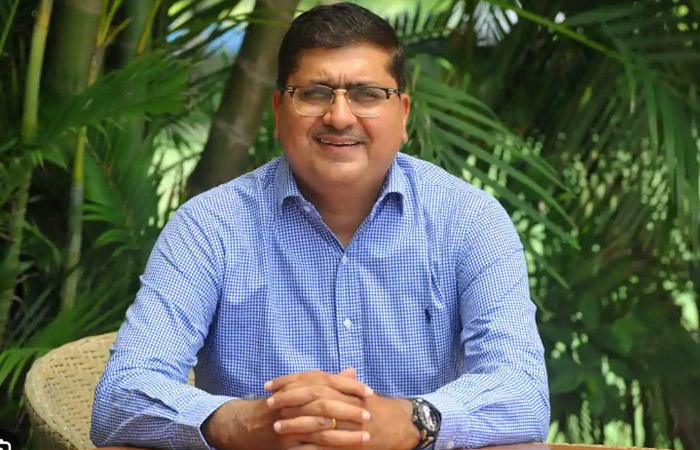
There will be a shift towards advanced synthetic and semi-synthetic grades
Can you provide an overview of Gulf Oil's positioning in the current landscape, especially in the construction industry?
Gulf Oil has strategically positioned itself in the construction industry by adopting a segmented business model, catering to both B2B and B2C lubricants. Over a decade ago, Gulf Oil recognised the significance of the infrastructure segment in Indias economy. The company formed a dedicated team to serve customers in this sector, offering specialised lubricants for various equipment and projects. This unique approach has set Gulf Oil apart in the industry, with a substantial focus on key accounts such as L&T, Shapoorji Pallonji, and more. Currently, this segment contributes to approximately 6 to 7 per cent of Gulf Oils volumes, experiencing double-digit growth annually.
What challenges and opportunities does Gulf Oil foresee in the current market scenario, particularly in the construction and infrastructure projects?
Gulf Oil acknowledges challenges related to project timelines, funding, and the need for skilled manpower in the construction industry. Ensuring timely completion of projects, addressing funding cycles, and managing skilled personnel for equipment maintenance are crucial challenges. On the flip side, the industrys continuous growth presents opportunities. Gulf Oil emphasises the importance of having the right skill set to manage equipment efficiently and the need for quick turnaround times on projects.
Can you share Gulf Oil's experience and involvement in the Excon exhibition in Bengaluru?
Gulf Oil has actively participated in Excon exhibitions. I have been involved in steering committees for various editions. The company has successfully built its customer and OEM base through these events. Gulf Oil highlights its commitment to sustainability, globalisation, technology, and inclusiveness, aligning with the themes emphasised in Excon. The company showcased products such as Gulf Harmony Biosynthetic 46, a biodegradable hydraulic oil, and UV fluids, demonstrating its dedication to environmental sensitivity and sustainable solutions.
What recent advances or features has Gulf Oil introduced in its products for the construction equipment sector?
Gulf Oil has a history of pioneering lubricants with a focus on longevity and quality. Recently, the company introduced products like Gulf Harmony Biosynthetic, a synthetic oil with advanced grades, and a biodegradable hydraulic oil called Harmony. Additionally, Gulf Oil launched Gulf Harmony Premium 46, a zinc-free hydraulic oil designed for extreme weather conditions in India. The company also introduced high-performance wire rope grease, emphasising its commitment to optimal lubrication and product durability.
How does Gulf Oil collaborate with OEMs and other industry partners to enhance its products and services?
Gulf Oil values partnership for growth as a fundamental principle. Over the years, the company has established partnerships with over 40 OEMs in the automotive, industrial, and construction equipment sectors. These partnerships go beyond product collaboration, extending to various segments such as factory, aftermarket, and operator levels. Gulf Oils approach involves working closely with OEMs on product technology, testing, and providing comprehensive services, including education for dealers and operators. The company also emphasises the importance of being at the forefront of technology, working with additive companies and base oils in its state-of-the-art R&D facility in Chennai.
How is Gulf Oil addressing sustainability concerns, both internally and in its product offerings?
Gulf Oil is actively addressing sustainability concerns by developing products that promote environmental consciousness. The companys long-lasting oils contribute to sustainability, and it has introduced biodegradable lubricants. Gulf Oil is also adapting its lubricants to meet the needs of alternative fuels like CNG, LPG, and hydrogen. In the EV space, the company is manufacturing charging solutions and investing in related technologies. Internally, Gulf Oil is exploring solar-powered electricity for its plants and incorporating recycled plastic usage. The companys AdBlue product helps reduce NOx emissions, demonstrating its commitment to sustainability.
What market trends does Gulf Oil anticipate, and how is the company preparing to adapt to these trends?
Gulf Oil anticipates continued growth in the lubricants industry, with a focus on industrial and infrastructure lubricants. Despite the rise of electric vehicles, the lubricants industry is expected to grow by 2 to 3 per cent in volume and 6 to 7 per cent in value over the next decade. Gulf Oil emphasises the trend of improving lubricant quality, with a shift towards more advanced synthetic and semi-synthetic grades. The company is positioning itself to cater to the demand for better viscosity and premium lubricants in the Indian market. Gulf Oil sees industrial and infrastructure lubricants as the key growth segments, driven by the expansion of world-class equipment in India.
How does Gulf Oil view the PLI scheme and its potential impact on the growth of the auto and auto components industry?
Gulf Oil views the PLI scheme positively, expecting it to have a significant impact on the growth of the auto and auto components industry. The scheme promotes regional supply concepts, making India a hub for OEMs supplying to global markets. Gulf Oil sees this as a boost to the localization efforts in the industry. The stability of the political and social environment, along with the availability of labour and advancing technology, positions India favourably. Gulf Oil believes that the PLI scheme, coupled with India's stable environment, will contribute to the continuous growth of the industry.
As we approach the end of the year, what are Gulf Oils plans for 2024 in terms of investments, capacity extension, and overall market strategy?
Gulf Oil has a robust plan for 2024, with a focus on rewarding shareholders and improving market share across segments. The company aims to achieve two to three times the industrys growth rate, emphasising both B2B and B2C markets. Gulf Oil plans to invest around Rs 25 crore in capex for its lubricant business. With strong brand recognition and partnerships, the company aims to grow consistently, improve margins, and achieve double-digit growth in various segments. Gulf Oil is confident in its capacity, with utilisation at 90 to 95 per cent, and anticipates a positive outlook for 2024 with a strategic focus on growth and market expansion.


 +91-22-24193000
+91-22-24193000 Subscriber@ASAPPinfoGlobal.com
Subscriber@ASAPPinfoGlobal.com